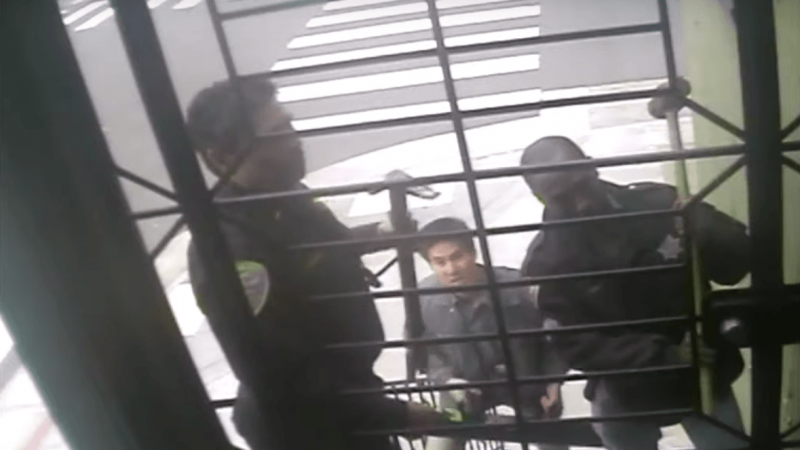San Francisco Judge Overturns Illegal Warrant Used to Monitor Journalist's Phone
Superior Court Judge Rochelle East says the warrant violated California law.

A judge has revoked a search warrant that the San Francisco Police Department (SFPD) illegally obtained to monitor a journalist's phone. With the warrant's recension, officers must also destroy all evidence obtained from its use.
San Francisco Superior Court Judge Rochelle East ruled that the warrant violated California's Shield Law, which protects journalists from being held in contempt when they refuse to name a source and excludes related items from being subject to search warrants. East says the cops did not inform her that Carmody was a journalist when they requested the wiretap warrant.
The reporter, Bryan Carmody, drew the fury of the SFPD earlier this year when he disseminated a leaked police report surrounding the February death of Jeff Adachi, the city's former public defender. (The document said that Adachi had been with a woman who wasn't his wife in an apartment filled with "cannabis gummies" and "empty bottles of alcohol," among other embarrassing details. The rather salacious and irrelevant contents raised suspicions that a faction of the SFPD was looking for retribution against Adachi, who was known for relentlessly criticizing the police.)
Subsequently, officers obtained a warrant to monitor Carmody's phone for "subscriber information, call detail records, SMS usage, mobile data usage and cell tower data" from February 22 until February 23, as well as further "remote monitoring" on the phone "day or night." In May, after Carmody declined to provide his source, armed officers barged into his apartment with sledgehammers and raided his apartment, taking the electronic equipment that Carmody uses to run his news operation. The warrant acquired for that search currently remains intact, though it likely also violated California's Shield Law. Carmody's attorney, Tom Burke, is engaged in a legal battle to quash that one, too.
In Thursday's hearing, the police sergeant who obtained the warrant reportedly testified that he was unaware of Carmody's line of work. (It's worth noting that the journalist maintained a police press pass for 16 years.) Police Chief William Scott blamed his staff in May for failing to identify Carmody's profession, eliciting the ire of the San Francisco Police Officers' Association, who said it was Scott that nefariously neglected to note his status as a journalist.
Editor's Note: As of February 29, 2024, commenting privileges on reason.com posts are limited to Reason Plus subscribers. Past commenters are grandfathered in for a temporary period. Subscribe here to preserve your ability to comment. Your Reason Plus subscription also gives you an ad-free version of reason.com, along with full access to the digital edition and archives of Reason magazine. We request that comments be civil and on-topic. We do not moderate or assume any responsibility for comments, which are owned by the readers who post them. Comments do not represent the views of reason.com or Reason Foundation. We reserve the right to delete any comment and ban commenters for any reason at any time. Comments may only be edited within 5 minutes of posting. Report abuses.
Please to post comments


East says the cops did not inform her that Carmody was a journalist when they requested the wiretap warrant.
?! I guess we're not all journalists now...
A small victory, but someone needs to inform the judge that anyone with a blog or podcast is a journalist now.
The SFPD looks several layers of bad on this one.
Anyone with a pencil, a smartphone, or and audio recorder is also a journalist!
What about someone with a press pass for the previous 16 years? Read the article...
"East says the cops did not inform her that Carmody was a journalist when they requested the wiretap warrant."
The paper Chron yesterday had it that the judge was not informed that Carmody had a "press pass".
So if you have 'official papers' you can be in possession of leaked info regarding an elected official, but watch out otherwise?
Orwell was psychic it seems.
It's just more occupational licensing.
I wonder what the consequences are for those whom obviously and purposely mislead judges on warrant applications?
For such egregious obstruction of justice and due process, they might be forced to 'investigate' themselves!
Pretty sure it was a cop, so s/he might get a paid vacation.
None?
There should be something judges can order when mislead that says the named officer has no credibility in the court. Then the officer cannot testify or apply for other warrants.
"With the warrant's recension..."
I don't think "recension" is the word you're looking for here. Recension is a critical revision of a text. I think the word you're looking for is "rescind." Maybe "with the warrant's rescindment..." or "With the warrant rescinded..."
Unless "recension" has a specific legal meaning that I'm unaware of.